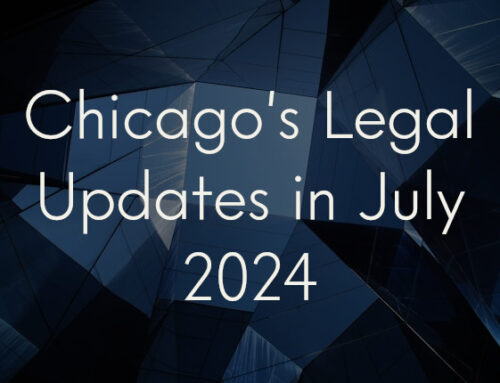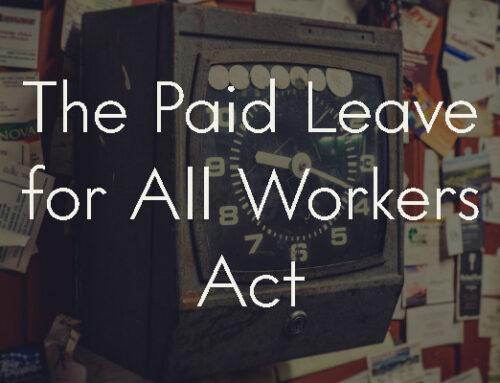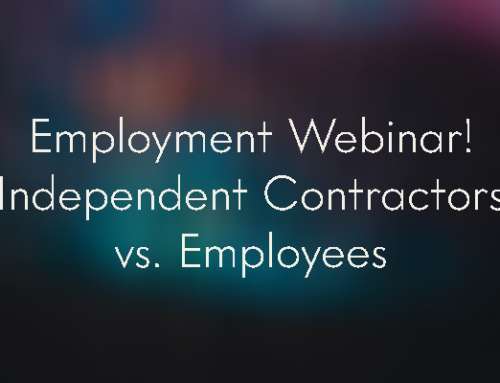New Paid Leave Laws for Illinois Employees
- Three new major paid leave laws will go into effect in Illinois in 2024.
- The Paid Leave for All Workers Act applies to any employer with an employee in the state.
- Cook County’s paid leave ordinance applies to any employer with an employee in Cook County.
- Chicago’s paid leave ordinance applies to any employer with an employee in Chicago.
Three new paid leave laws will go into effect in Illinois as we round the corner to 2024, impacting employers in a big way. It’s important to know which laws apply to your employees and what you need to do to be compliant with those laws. Here are the most important takeaways from these updates:
What are the three laws?
- Chicago City Council approved the Chicago Paid Leave and Paid Sick and Safe Leave Ordinance on November 9, 2023 and later amended the ordinance on December 13, 2023. This is not yet updated in the Municipal Code, but we can provide links to the text of Chicago’s ordinance (here) and the amendment to it (here).
- Cook County approved the Cook County Paid Leave Ordinance on December 14, 2023. You can find the text of Cook County’s ordinance here.
- The state of Illinois enacted the Paid Leave for All Workers Act (PLAWA) on March 13, 2023. We have a full analysis here. (820ILCS/192/)
When will these laws go into effect?
- Chicago: July 1, 2024.
- Cook County: December 31, 2023.
- State of Illinois: January 1, 2024.
What rules are common to all three laws?
- All three laws require covered employees to earn up to 40 hours of paid leave per 12 months of work.
- The paid leave provided for in each law must be able to be used by the employee for any reason.
- All three laws require employees to be able to carry over at least a portion of accrued paid leave each year.
- All three laws prohibit employer retaliation against an employee for exercising their rights under the paid leave law.
- All three laws base the determination of whether an employee is a “covered employee” on the geographic location where the employee physically works.
- All three laws require employers to provide notices to covered employees of their rights under the law that applies to that employee.
- Employees with collective bargaining agreements are not covered by any of these laws.
Which law applies to my employees?
This will depend on where your employees physically work, and there are some exceptions and special rules for employees who may move between locations. However, the basic breakdown is that if your employee works in:
- Chicago: Continue to follow Chicago’s current Paid Sick Leave ordinance until July 1, 2024 and then the city’s new Paid Leave and Paid Sick and Safe Leave ordinance.
- Cook County (excluding Chicago): Follow the Cook County Paid Leave ordinance starting December 31, 2023.
- Illinois (outside of Cook County): Follow PLAWA starting January 1, 2024.
Note: As laid out in PLAWA, Chicago’s and Cook County’s ordinances will override the state law (820ILCS 192/15(p)). Cook County has not specifically stated that it will defer to Chicago, but has done so in the past. We expect them to do so again when the Commission on Human Rights releases additional rules.
Who is a “covered” employee?
Chicago: An employee who works at least 80 hours within any 120-day period. Once the employee qualifies as a “covered employee”, they remain a covered employee until their employment with that employer is terminated.
Cook County: Any employee who works in Cook County. However, Cook County defers to cities with their own ordinance providing paid leave, like Chicago, and some municipalities may opt out based on Home-rule laws.
Illinois (outside of Cook County): Any employee working in the state of Illinois who is not subject to a local ordinance that was enacted prior to PLAWA or has equal or greater paid leave provisions.
How much leave does an employer need to provide?
Chicago: 1 hour of sick and safe leave and 1 hour of paid leave per 35 hours worked.
Cook County: 1 hour of paid leave per 40 hours worked.
Illinois: 1 hour of paid leave per 40 hours worked.
What are the penalties for violating the laws?
Chicago: Fines of up to $3,000 per violation; civil damages to the employee of up to three times the amount determined to have been underpaid plus attorney fees and court costs; and/or denial, suspension, or revocation of business license.
Cook County: Civil damages to the employee of the underpaid amount; compensatory damages; civil fines of up to $1,000 per violation paid to the employee; and civil fines of up to $2,500 per violation paid to the Cook County Commission on Human Rights.
Illinois: The Department of Labor is still promulgating rules for enforcement, but the act provides for civil penalties up to $2,500 per violation and damages to the employee including the underpaid amount, compensatory damages, and a penalty of up to $1,000 per violation.
What do employers need to do?
- Review, update, or create leave policies that comply with the new rules.
- Provide employees with written notice of current leave policies.
- Provide written notice to employees within 5 days of any change to leave policies.
- Post written notice of leave policies in each workplace location (each regulatory agency will provide posters).
The city of Chicago hosted a webinar to provide answers to many questions on their ordinance, which can be found here. The state of Illinois posted an FAQ, which can be found here. And finally, Cook County posted information on the new ordinance here. We expect them to update their FAQ soon.
There are a lot of nuances to each law and the various regulatory bodies are still issuing rules and FAQs on them, so this article is not intended to be all-inclusive. If you are unsure about how to apply these new laws or which ones you need to follow, speak with an attorney now. Get in touch!





